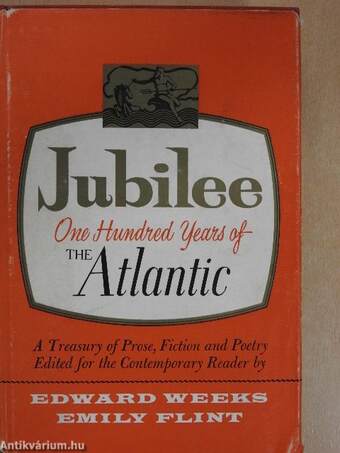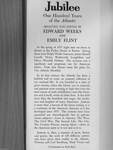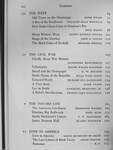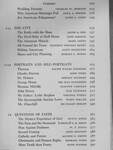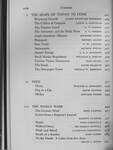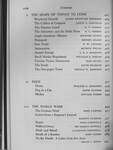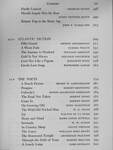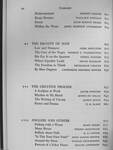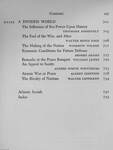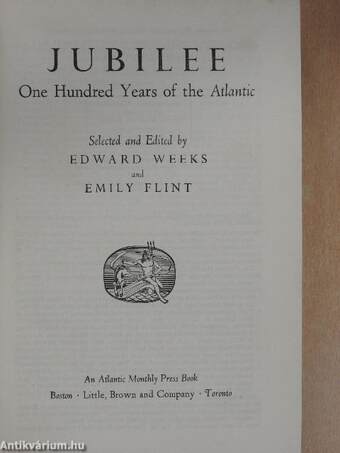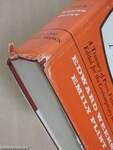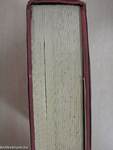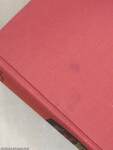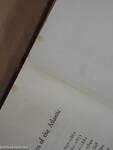1.118.174
kiadvánnyal nyújtjuk Magyarország legnagyobb antikvár könyv-kínálatát
Jubilee
One Hundred Years of the Atlantic/A Treasury of Prose, Fiction and Poetry
| Kiadó: | Little, Brown and Company |
|---|---|
| Kiadás helye: | Boston |
| Kiadás éve: | |
| Kötés típusa: | Vászon |
| Oldalszám: | 767 oldal |
| Sorozatcím: | |
| Kötetszám: | |
| Nyelv: | Angol |
| Méret: | 22 cm x 15 cm |
| ISBN: | |
| Megjegyzés: | További szerzők a kötetben. |
naponta értesítjük a beérkező friss
kiadványokról
naponta értesítjük a beérkező friss
kiadványokról
Fülszöveg
Jubilee
One Hundred Years
of the Atlantic
SELECTED AND EDITED BY
EDWARD WEEKS
and
EMILY FLINT
In the spring of 1857 eight men sat down to
dinner at the Parker House in Boston. Among
them were Ralph Waldo Emerson, James Russell
Lowell, Henry Wadsworth Longfellow and
Oliver Wendell Holmes. The occasion was a
significant and propitious one for American
letters. From that dinner came the plans for
The Atlantic Monthly.
In its first century the Atlantic has been a
faithful and in crises an inspired reflection of
our national life. It was founded at a time of
great tension, when the Union was in jeopardy
and passions were running so high that even the
most serene of early contributors, men like Emer-
son and Lowell, wrote at white heat. It has held
since then the heartbeat and anger, the tender-
ness and laughter of many Americans. Jubilee
is more than a harvest of the finest writing, it is
a revelation of the American character as it has
developed since 1857.... Tovább
Fülszöveg
Jubilee
One Hundred Years
of the Atlantic
SELECTED AND EDITED BY
EDWARD WEEKS
and
EMILY FLINT
In the spring of 1857 eight men sat down to
dinner at the Parker House in Boston. Among
them were Ralph Waldo Emerson, James Russell
Lowell, Henry Wadsworth Longfellow and
Oliver Wendell Holmes. The occasion was a
significant and propitious one for American
letters. From that dinner came the plans for
The Atlantic Monthly.
In its first century the Atlantic has been a
faithful and in crises an inspired reflection of
our national life. It was founded at a time of
great tension, when the Union was in jeopardy
and passions were running so high that even the
most serene of early contributors, men like Emer-
son and Lowell, wrote at white heat. It has held
since then the heartbeat and anger, the tender-
ness and laughter of many Americans. Jubilee
is more than a harvest of the finest writing, it is
a revelation of the American character as it has
developed since 1857. The contents have been
presented not chronologically but in galaxies
whose subjects — Love in America, The West,
The Civil War, The Inward Life, The City,
The Creative Process, among others — show us
the American spirit as it was and as it is.
Jubilee is, then, a treasury of prose, fiction
and poetry, the work of 128 different authors
who have given their vitality to the Atlantic.
Thoreau and Carl Sandburg; Mark Twain and
(Continued on hack flap)
(Continued from front flap)
Owen Wister and John P. Marquand; G. Ber-
nard Shaw and Dr. Hans Zinsser; T. S. Eliot
and Thornton Wilder; Robert Frost, John Mase-
field, W. H. Auden and Dylan Thomas; James
Joyce and Emily Dickinson; Virginia Woolf and
A. N. Whitehead; Albert Einstein, Woodrow
Wilson — the list is wide-ranging and incompar-
able. In fiction special attention has been given
to Atlantic "Firsts," stories in which the maga-
zine played the role of discoverer, as in the case
of Eudora Welty, Ernest Hemingway, Jessamyn
West and Richard Bissell. In other sections one
reads Theodore Roosevelt's predictions for Amer-
ican sea power, Booker T. Washington pleading
"The Case of the Negro/' Jacob Epstein de-
scribing how a sculptor works, Agnes de Mille
discussing the motivation of the ballet dancer,
O '
and Woodrow Wilson on "The Making of the
Nation."
In 1857 Charles Eliot Norton wrote Lowell,
the newly announced editor of the Atlantic:
"It would be a great thing for us if any under-
taking of this kind could live long enough to
get affections and associations connected with it,
whose steady glow would take the place of . . .
the shine of novelty.' Every reader of Jubilee
will perceive the "steady glow" that Norton
hoped for, a steady glow rising often to the fierce
white light of the American character when
aroused.
Jubilee has been edited by Edward Weeks
(present editor of the Atlantic) and Emily Flint
(his managing editor); Mr. Weeks has written a
brilliant general introduction, forewords for the
o
eighteen sections, and biographical notes on each
of the authors.
Jacket design by George Kelley Vissza
Témakörök
- Szépirodalom > Versek, eposzok > Versantológia
- Idegennyelv > Idegennyelvű könyvek > Angol > Szépirodalom > Antológia
- Idegennyelv > Idegennyelvű könyvek > Angol > Szépirodalom > Regény, novella, elbeszélés
- Idegennyelv > Idegennyelvű könyvek > Angol > Szépirodalom > Versek, eposzok > Versantológia
- Szépirodalom > Regény, novella, elbeszélés > Az író származása szerint > Amerika > Amerikai Egyesült Államok
- Szépirodalom > Versek, eposzok > A szerző származása szerint > Amerika > Amerikai Egyesült Államok
- Szépirodalom > Antológia


